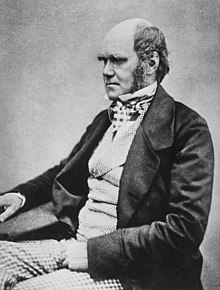
Back بوابة:علم البيئة Arabic Portal:Ecologia Catalan Portal:Økologien Danish Portal:Ecología Spanish درگاه:بومشناسی Persian Portail:Écologie French 포털:생태학 Korean Портал:Екологија Macedonian Portal:Ecologia Portuguese Portal:Ecologie Romanian
| |
|
|
Ecology
|
|
Ecology (from Ancient Greek οἶκος (oîkos) 'house', and -λογία (-logía) 'study of') is the natural science of the relationships among living organisms, including humans, and their physical environment. Ecology considers organisms at the individual, population, community, ecosystem, and biosphere levels. Ecology overlaps with the closely related sciences of biogeography, evolutionary biology, genetics, ethology, and natural history. Ecology is a branch of biology, and is the study of abundance, biomass, and distribution of organisms in the context of the environment. It encompasses life processes, interactions, and adaptations; movement of materials and energy through living communities; successional development of ecosystems; cooperation, competition, and predation within and between species; and patterns of biodiversity and its effect on ecosystem processes. Ecology has practical applications in conservation biology, wetland management, natural resource management (agroecology, agriculture, forestry, agroforestry, fisheries, mining, tourism), urban planning (urban ecology), community health, economics, basic and applied science, and human social interaction (human ecology). The word ecology (German: Ökologie) was coined in 1866 by the German scientist Ernst Haeckel. The science of ecology as we know it today began with a group of American botanists in the 1890s. Evolutionary concepts relating to adaptation and natural selection are cornerstones of modern ecological theory. Ecosystems are dynamically interacting systems of organisms, the communities they make up, and the non-living (abiotic) components of their environment. Ecosystem processes, such as primary production, nutrient cycling, and niche construction, regulate the flux of energy and matter through an environment. Ecosystems have biophysical feedback mechanisms that moderate processes acting on living (biotic) and abiotic components of the planet. Ecosystems sustain life-supporting functions and provide ecosystem services like biomass production (food, fuel, fiber, and medicine), the regulation of climate, global biogeochemical cycles, water filtration, soil formation, erosion control, flood protection, and many other natural features of scientific, historical, economic, or intrinsic value. (Full article...) Selected article - Plant ecology is a subdiscipline of ecology that studies the distribution and abundance of plants, the effects of environmental factors upon the abundance of plants, and the interactions among plants and between plants and other organisms. Examples of these are the distribution of temperate deciduous forests in North America, the effects of drought or flooding upon plant survival, and competition among desert plants for water, or effects of herds of grazing animals upon the composition of grasslands. A global overview of the Earth's major vegetation types is provided by O.W. Archibold. He recognizes 11 major vegetation types: tropical forests, tropical savannas, arid regions (deserts), Mediterranean ecosystems, temperate forest ecosystems, temperate grasslands, coniferous forests, tundra (both polar and high mountain), terrestrial wetlands, freshwater ecosystems and coastal/marine systems. This breadth of topics shows the complexity of plant ecology, since it includes plants from floating single-celled algae up to large canopy forming trees. (Full article...)Selected image -Lightning is an atmospheric electrostatic discharge (spark) accompanied by thunder, which typically occurs during thunderstorms, and sometimes during volcanic eruptions or dust storms. The study of the atmosphere and atmospheric variables that affect various ecoregions and ecosystems is a significant part of the discipline of Ecology.
General imagesThe following are images from various ecology-related articles on Wikipedia.
Related WikiProjectsThings you can do
Entries here consist of Good and Featured articles, which meet a core set of high editorial standards.
Climate is the long-term weather pattern in a region, typically averaged over 30 years. More rigorously, it is the mean and variability of meteorological variables over a time spanning from months to millions of years. Some of the meteorological variables that are commonly measured are temperature, humidity, atmospheric pressure, wind, and precipitation. In a broader sense, climate is the state of the components of the climate system, including the atmosphere, hydrosphere, cryosphere, lithosphere and biosphere and the interactions between them. The climate of a location is affected by its latitude, longitude, terrain, altitude, land use and nearby water bodies and their currents. Climates can be classified according to the average and typical variables, most commonly temperature and precipitation. The most widely used classification scheme was the Köppen climate classification. The Thornthwaite system, in use since 1948, incorporates evapotranspiration along with temperature and precipitation information and is used in studying biological diversity and how climate change affects it. The major classifications in Thornthwaite's climate classification are microthermal, mesothermal, and megathermal. Finally, the Bergeron and Spatial Synoptic Classification systems focus on the origin of air masses that define the climate of a region. (Full article...)Selected biography -Charles Robert Darwin FRS FRGS FLS FZS JP (/ˈdɑːrwɪn/ DAR-win; 12 February 1809 – 19 April 1882) was an English naturalist, geologist, and biologist, widely known for his contributions to evolutionary biology. His proposition that all species of life have descended from a common ancestor is now generally accepted and considered a fundamental scientific concept. In a joint publication with Alfred Russel Wallace, he introduced his scientific theory that this branching pattern of evolution resulted from a process he called natural selection, in which the struggle for existence has a similar effect to the artificial selection involved in selective breeding. Darwin has been described as one of the most influential figures in human history and was honoured by burial in Westminster Abbey. Darwin's early interest in nature led him to neglect his medical education at the University of Edinburgh; instead, he helped to investigate marine invertebrates. His studies at the University of Cambridge's Christ's College from 1828 to 1831 encouraged his passion for natural science. However, it was his five-year voyage on HMS Beagle from 1831 to 1836 that truly established Darwin as an eminent geologist. The observations and theories he developed during his voyage supported Charles Lyell's concept of gradual geological change. Publication of his journal of the voyage made Darwin famous as a popular author. (Full article...)Did you know (auto-generated)
Selected quote -
Ecology news
Additional News Highlights
Selected publication -Oecologia is an international peer-reviewed English-language journal published by Springer. The journal publishes original research in a range of topics related to plant and animal ecology. The journal has an international focus and presents original papers, methods, reviews and special topics. Papers focus on population ecology, plant-animal interactions, ecosystem ecology, community ecology, global change ecology, conservation ecology, behavioral ecology and physiological ecology. (Full article...) Related portalsMore did you know -Related articlesAssociated WikimediaThe following Wikimedia Foundation sister projects provide more on this subject:
Web resourcesPreview warning: Page using Template:Div col with unknown parameter "1 = 2"; use colwidth= to specify column size
Discover Wikipedia using portals |
© MMXXIII Rich X Search. We shall prevail. All rights reserved. Rich X Search
















































